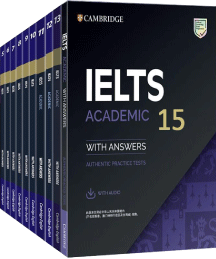

Why Choose Us?

First in Habiganj
Computer & paper-based IELTS preparation

Experienced Instructors
Experienced Instructors

90+ Classes
Completed Tests

Premium Study Materials
Premium Study Materials

Free Mock Tests
Evaluate progress with real exam simulations

Flexible Payment Options
Convenient plans to suit your needs

Personalized Feedback
Tailored guidance to achieve your
target score

Exclusive Exam Strategies
Secret tips to maximize your
performance

High Success Rate
Helping students reach their
dream scores
Why Choose Us?

Free Mock Tests
Evaluate progress with real exam simulations

90+ Classes
Completed Tests

First in Habiganj
Computer & paper-based IELTS preparation

Experienced Instructors
Experienced Instructors

Flexible Payment Options
Convenient plans to suit your needs

Premium Study Materials
Premium Study Materials
Our Courses
Cambridge
- Cambridge Listening Tests
- Cambridge Reading Tests
- Cambridge Writing Tests
- Cambridge Speaking Tests
- 50+ Free Tests

Premium Course
(3.5 Months | 50+ Classes)
- Listening (30 Tests)
- Writing (30 Tests)
- Speaking (30 Tests)
Paper-Based IELTS Course
(3 Months | 40+ Classes)
- Listening (8 Classes)
- Reading (10 Classes)
- Writing (12 Classes)
- Speaking (6 Classes)
- Mock Tests & Feedback (4+ Classes)
- Flexible 3-Installment Payment System
- 1 Full & 2 Half Scholarships Available for Top Performers
Computer-Based IELTS Course
(3.5 Months | 50+ Classes)
- Listening (8 Classes)
- Reading (10 Classes)
- Writing (12 Classes)
- Speaking (6 Classes)
- Mock Tests & Feedback (8+ Classes)
- Flexible 3-Installment Payment System
- 1 Full & 2 Half Scholarships Available for Top Performers
Course Outline
Paper-Based IELTS Course
Listening (8 Classes)
- Understanding question types & strategies
- Predicting answers & improving accuracy
- Practice with real exam-like recordings
- Time management techniques
Reading (10 Classes)
Skimming, scanning & detailed reading strategies
Tackling True/False/Not Given & Matching Headings
Improving speed & accuracy
Full-length reading practice
Writing (12 Classes)
Task 1: Graphs, charts, and letter writing techniques
Task 2: Essay structures & argument development
Time management for both tasks
Individual feedback & model answers
Speaking (6 Classes)
Fluency, pronunciation & confidence building
Part 1: Introduction & short questions
Part 2: Cue card techniques
Part 3: Discussion & opinion-based questions
Mock Tests & Feedback (4+ Classes)
3 Full-Length Mock Tests (Cambridge Standard)
7 Partial Mock Tests
Personalized feedback & score improvement plan
Payment Flexibility & Scholarship
Course Fee: 4,500 BDT
Flexible 3-Installment Payment System
Scholarship: 1 Full & 2 Half Scholarships Available for Top Performers
Computer-Based IELTS Course
Listening (10 Classes)
Computer-based listening techniques & strategies
Familiarization with on-screen question types
Time management & note-taking skills
Exam simulation with computer interface
Reading (12 Classes)
Navigating the computer-based reading interface
Techniques for multiple-choice, matching, and summary completion
Speed reading & highlighting strategies
Full-length practice with computer-based system
Writing (14 Classes)
Typing techniques for fast & accurate responses
Task 1: Analyzing charts, graphs & diagrams efficiently
Task 2: Essay writing with structure & coherence
Real-time practice on computer with feedback
Speaking (6 Classes)
Fluency, pronunciation & confidence-building exercises
Cue card practice with real-time feedback
One-on-one mock speaking tests
Mock Tests & Feedback (8+ Classes)
3 Full-Length Computer-Based Mock Tests
7 Partial Mock Tests
Hands-on practice with real exam-like software
Detailed score analysis & improvement strategies
Payment Flexibility & Scholarship
Course Fee: 6,900 BDT
Flexible 3-Installment Payment System
Scholarship: 1 Full & 2 Half Scholarships Available for Top Performers
Seek Consultation
Tips & Tricks
IELTS Listening: Complete Guide to Strategies & Improvement
The IELTS Listening Test consists of four sections, with a total of 40 questions. You hear the audio
only once, so mastering strategies and techniques is essential for scoring high.
General Listening Strategies & Tricks
- Active Listening Practice
Regularly listen to English podcasts, news, and conversations (BBC, TED Talks, IELTS Listening
Practice Audio).
Focus on understanding different accents (British, American, Australian).
⃣Predict the Answers Before Listening
Read the questions carefully during the given 30-second preparation time.
Identify keywords and synonyms to anticipate what to listen for.
⃣Pay Attention to Signposting Words
Common transitions that give hints:
o “Let’s move on to…” (indicates change in topic)
o “The most important thing is…” (signals key information)
o “However / But / Although…” (contrast in meaning)
⃣Beware of Distractors
The speaker may change their answer or give extra information to confuse you.
Example:
o Speaker: “The event will start at 6:00 PM… oh wait, actually, it has been rescheduled to
7:00 PM.”
o Correct Answer: 7:00 PM
⃣Time Management & Checking Answers
Use the given 10 minutes at the end to transfer and check answers.
Ensure correct spelling and grammar—even small mistakes can cost marks!
Each section increases in difficulty, requiring strong concentration and note-taking skills
How to Improve IELTS Listening Score
Daily Practice Strategies
- Listen to Authentic English
o BBC News, TED Talks, Podcasts (IELTS Energy, The Guardian)
- Practice With Cambridge Tests
o Try Cambridge IELTS 9–19 Listening Tests
- Shadow Listening (Repeat What You Hear)
o Helps with pronunciation & understanding fast speech
- Improve Note-Taking
o Write only keywords instead of full sentences
Exam-Day Strategies
✅ Use capital letters in answers (to avoid spelling errors).
✅ Don’t leave any blanks—guess if unsure.
✅ Review spelling & grammar during the 10-minute transfer time.
Final Tip: The 3-Step Listening Improvement Plan
⃣Basic Level (Week 1-2) → Listen to slow-speed audio & understand main ideas.
⃣Intermediate Level (Week 3-4) → Increase speed & take notes while listening.
⃣Advanced Level (Week 5-6) → Practice with real IELTS tests & full mock tests.
With consistent practice, a high IELTS Listening score (Band 8.0+) is possible!
IELTS Reading: Complete Guide to Strategies & Improvement
The IELTS Reading Test consists of 3 passages with a total of 40 questions. You have 60 minutes to
complete the test, and there is no extra time to transfer answers. Effective strategies and
consistent practice are key to achieving a high score.
General Reading Strategies & Tricks
⃣Skimming & Scanning
Skimming → Read the passage quickly to get the main idea.
Scanning → Look for specific words, numbers, and names without reading everything.
⃣Identify Keywords & Paraphrasing
IELTS questions rarely use the exact words from the passage.
Look for synonyms & paraphrased phrases.
o Example: “Increase in temperature” → “Rise in heat”
o Example: “More people are working remotely” → “Remote work is becoming more
common”
⃣Focus on Question Types First
Always read the questions first, then go to the passage.
Underline important words in the questions.
⃣Manage Your Time Efficiently
Passage 1 (Easy) → Spend 15 minutes
Passage 2 (Medium) → Spend 20 minutes
Passage 3 (Hard) → Spend 25 minutes
⃣Never Leave an Answer Blank!
Guess if necessary—there is no penalty for wrong answers.
How to Improve IELTS Reading Score
Daily Practice Strategies
- Read Different Types of Texts
o Academic articles (BBC, The Guardian, National Geographic)
o Scientific research papers & opinion pieces2. Practice with Cambridge IELTS Tests
o Use Cambridge IELTS 9–19 Reading Tests
- Improve Speed Reading
o Try reading 250-300 words per minute
o Use your finger or a pen to move faster
- Take Notes & Summarize Paragraphs
o Write one sentence summaries for each paragraph
Exam-Day Strategies
✅ Start with the easiest passage (Passage 1)
✅ Don’t?waste?too?much?time?on?one?question
✅ Write legibly & check spelling
✅ Stick to the word limit (e.g., NO MORE THAN TWO WORDS)
Final Tip: The 3-Step Reading Improvement Plan
⃣Basic Level (Week 1-2) → Focus on vocabulary & understanding passages.
⃣Intermediate Level (Week 3-4) → Improve skimming & scanning speed.
⃣Advanced Level (Week 5-6) → Take full IELTS mock tests under timed conditions.
With consistent practice, a high IELTS Reading score (Band 8.0+) is achievable!
How to Improve IELTS Reading Score
Daily Practice Strategies
- Read Different Types of Texts
o Academic articles (BBC, The Guardian, National Geographic)
o Scientific research papers & opinion pieces2. Practice with Cambridge IELTS Tests
o Use Cambridge IELTS 9–19 Reading Tests
- Improve Speed Reading
o Try reading 250-300 words per minute
o Use your finger or a pen to move faster
- Take Notes & Summarize Paragraphs
o Write one sentence summaries for each paragraph
Exam-Day Strategies
✅ Start with the easiest passage (Passage 1)
✅ Don’t?waste?too?much?time?on?one?question
✅ Write legibly & check spelling
✅ Stick to the word limit (e.g., NO MORE THAN TWO WORDS)
Final Tip: The 3-Step Reading Improvement Plan
⃣Basic Level (Week 1-2) → Focus on vocabulary & understanding passages.
⃣Intermediate Level (Week 3-4) → Improve skimming & scanning speed.
⃣Advanced Level (Week 5-6) → Take full IELTS mock tests under timed conditions.
With consistent practice, a high IELTS Reading score (Band 8.0+) is achievable!
